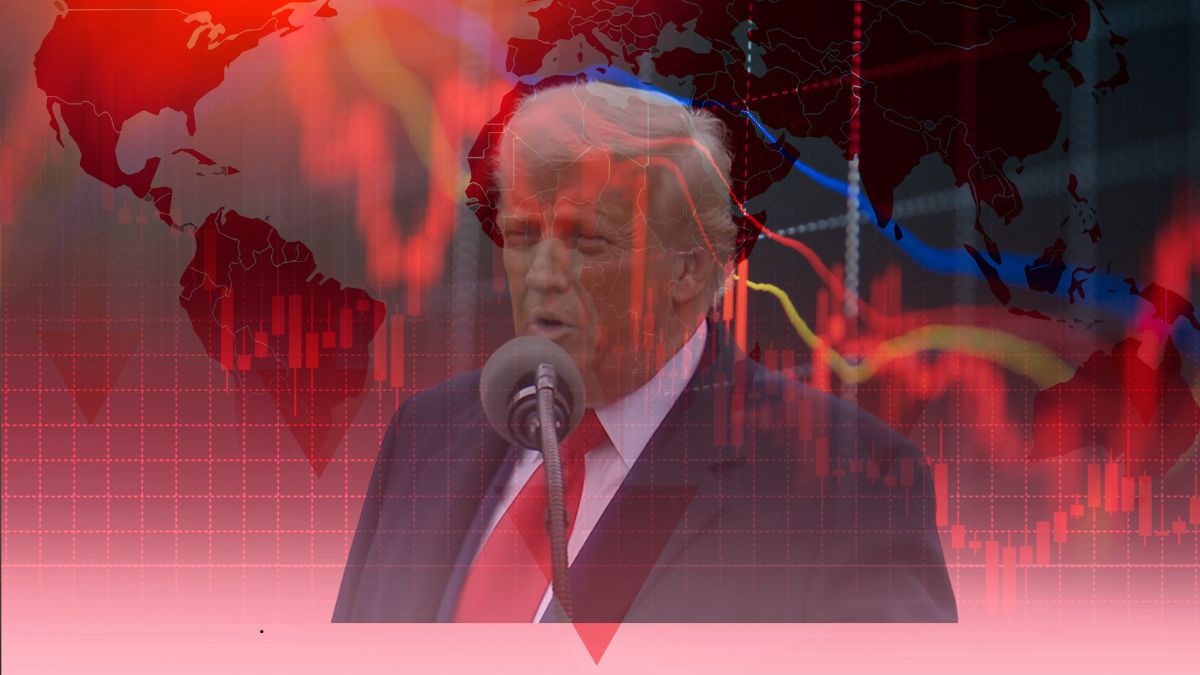The Dow Jones Industrial Average plummeted by 2,178.68 points on Friday, closing at 38,367.25 — its worst single-day drop since the pandemic turmoil in June 2020. The dramatic 5.37% fall capped a brutal week on Wall Street, sparked by fears of a full-blown global trade war after President Donald Trump imposed sweeping reciprocal tariffs.
The carnage wasn’t limited to the Dow. The Nasdaq Composite slumped over 5.5%, following a nearly 6% drop Thursday, pulling the tech-heavy index into bear market territory — now down 22% from its December highs. The S&P 500 also tumbled 5.4%, with both indices marking their worst weekly performances since 2020.
Markets reacted sharply after China retaliated with a 34% levy on all U.S. goods, escalating tensions that began with Trump’s surprise announcement on Wednesday of a 10% tariff across the board, along with much steeper duties for countries with large trade surpluses.
Big-name exporters and tech giants took the brunt of the sell-off. Boeing and Caterpillar — both heavily exposed to China — dropped 9% and 6%, respectively. Apple shares sank another 7%, bringing its weekly loss to 13%. Nvidia tumbled 8%, and Tesla shed 10%, all caught in the crosshairs of growing trade frictions and demand worries.
Further rattling investor sentiment, China’s commerce ministry added several American firms to its “unreliable entities list” and launched an antitrust investigation into DuPont, whose shares fell 12%.
Amid the turmoil, Federal Reserve Chair Jerome Powell issued a cautious but clear warning. Speaking in Arlington, Virginia, Powell said the central bank is facing a “highly uncertain outlook” and expects the new tariffs to stoke inflation and curb economic growth.
“The size and duration of these effects remain uncertain,” Powell said. “Our obligation is to keep longer-term inflation expectations well anchored and to make certain that a one-time increase in the price level does not become an ongoing inflation problem.”
He added that the Fed is prepared to wait for “greater clarity” before adjusting its policy stance and declined to respond directly to Trump’s public call for rate cuts, saying, “It’s just not appropriate for me.”
While Powell emphasized patience, markets are already pricing in aggressive interest rate cuts, expecting the Fed to slash borrowing costs by at least a full percentage point by year-end, according to CME Group data.
As recession fears mount and volatility roils global markets, investors are now watching closely to see whether any diplomatic breakthroughs can de-escalate the trade conflict — or if the turmoil is just beginning.
Disclaimer: The information provided is for informational purposes only and should not be considered financial or investment advice. Stock market investments are subject to market risks. Always conduct your own research or consult a financial advisor before making investment decisions.


